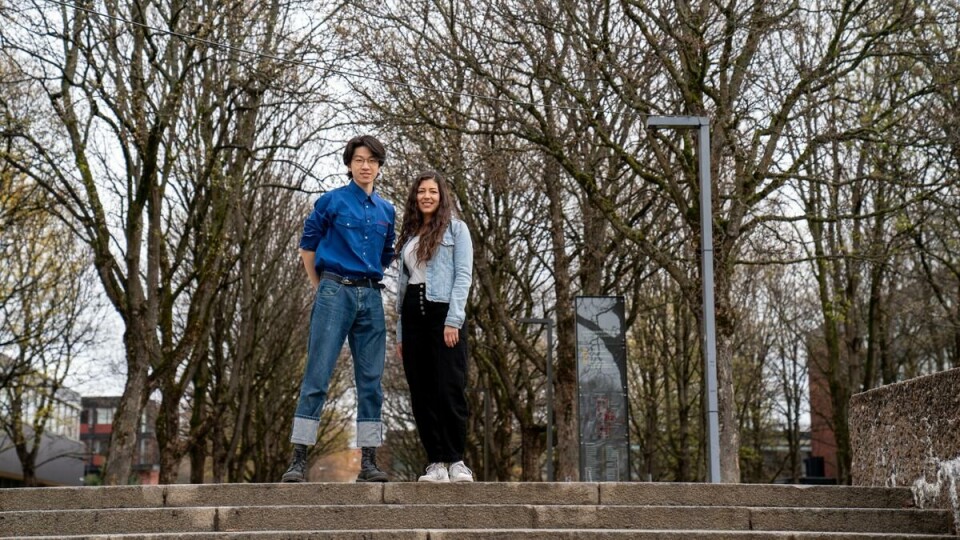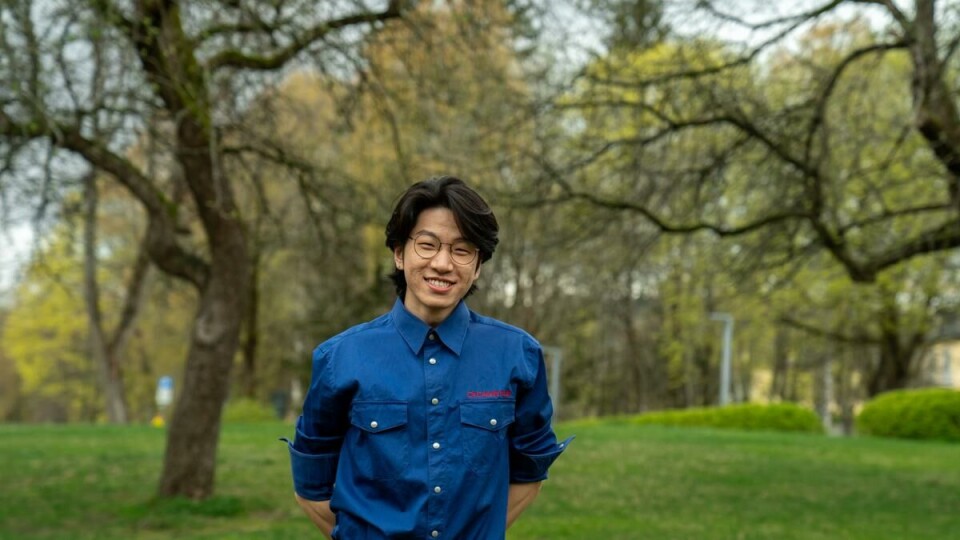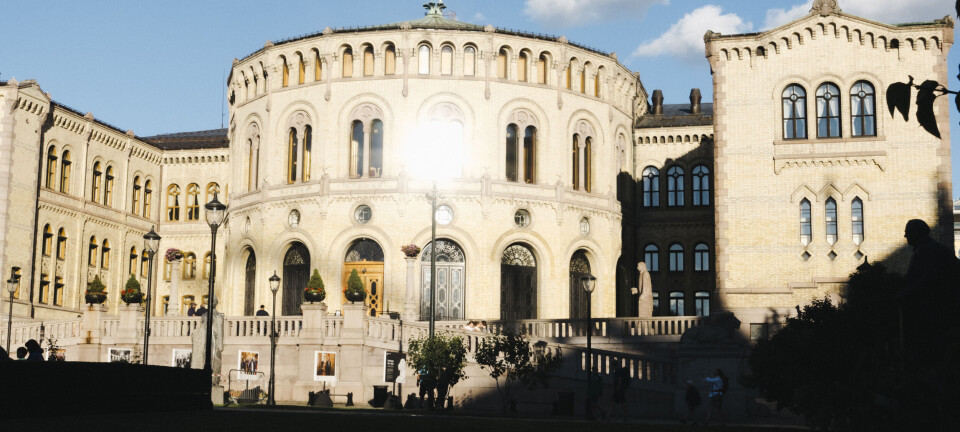
An Insiders Guide to Coping as an International Student in Oslo
Internationals at university share some ways they have managed to cope with life in Norway during COVID.
Student mental health is a topic much discussed and debated. The balance between deadlines, extracurriculars, part-time jobs and personal life, all while COVID looms behind, can be fragile and stressful. These feelings can be heightened for international students who must also adapt to the Norwegian lifestyle, environment, economic system and educational standards.
Inter Universitas has interviewed three students and reached out to SiO in order to shed light on the matter as well as the diversity of experiences and coping mechanisms for international students. All three students – Fabi Padilla, Fikret Halilov and Zhiyuan Hu – are pursuing graduate education, and they have moved to Oslo in January for their second semester.
Coping Mechanisms
Fabi, who is from Mexico and studies Screen Cultures at the University of Oslo, knew from the start that her study abroad wasn’t going to be a typical one. Despite the fact that Norway lacks many cultural and culinary aspects that characterize Mexico, her home country, she didn’t feel much loneliness in this regard. This is partially due to the fact that she already expected it to be a peculiar semester. The possibility of travelling around Europe in the future is also something that she keeps in mind.
For Zhiyuan, who studies the same course as Fabi, being surrounded by mostly Caucasian people and experiencing the Norwegian urban layout and architecture sharply contrasted his Chinese background. What has helped him cope with this unfamiliarity is watching and reading Chinese media.
— In your own room watching things in your mother tongue, it makes you feel surrounded by things you’re familiar with, he says.
— When experiencing culture shock from the outside world, it helps getting comfort from what’s familiar on the inside, such as native media.
Contrastingly, for Fikret, who’s from Turkey and studying Higher Education at the University of Oslo, when the huge shutdown began, the cons of living in Norway outweighed the pros. The closure of the libraries and the expense-heavy nature of living in Oslo made the stay not worth it any longer.
To cope, Fikret recommends developing three major skills: self-reliance, intuition and problem-solving. Regardless, bureaucratic issues and the job-seeking complications made being home and with his family an increasingly attractive option. As he explains:
— In other countries, opening a bank account would take seconds, but in Oslo it takes several weeks and hurdles. The legalistic nature of getting arounds makes you feel like you’re not being heard by a human being.
Every student has a different way of coping, but Fikret believes leaving was the right choice for his mental health.
Insider Guide to Dealing with Loneliness
The interviewed students expected social life to be a hurdle, given the lack of opportunity for social interaction during lockdowns. Fortunately, however, they highlight that they were able to make friends with their roommates and classmates.
— The small size of the graduate program made it so that we all became friends quite quickly since we were all alone together, Fabi remarks.
In a new setting, social interaction alongside other mechanisms can keep the loneliness at bay.
Additionally, Fabi mentions how adapting and exploring a new environment, for instance by taking walks in the Norwegian woods, helped her not to feel alone in this new country.
— Culture shock helped me with my mental health because I was distracted adapting to the cold weather instead of thinking how I was here alone, she explains.
Similarly, Zhiyuan found that any speckle of loneliness is surely overshadowed by the curiosity that comes with his visitor mindset.
— I’m still a visitor here and a visitor never gets bored in a new place. That sensation of newness can be dominant, and the consumption of new information leaves little energy for much else, he adds.
Both students also highlight the importance of keeping in touch with loved ones back home, which may require some effort due to differences in the time zones.

Virtual Academic Life
Fabi has not had an easy time adapting to the Norwegian academic life during COVID. Although coming to Norway meant she could attend her online classes in their normal time, she believes the Zoom lectures continue to be challenging. She argues that the lack of breaks and informal space to speak with classmates and professors harm her learning process
Zhiyuan voiced a similar position, as he also misses the sparkle and inspiration that comes with talking to colleagues and peers.
— Online lectures deprive us from an integral feature of a classroom, the use of space, he says.
— Half of education is comprehension of the lecture and the other equally-as-important half is its application outside of the classroom through making connections with classmates and professors. Such a task is difficult to undertake in an online classroom.
To mitigate this issue, Fabi started a study group with some classmates, creating a more informal space for social interactions. She is also grateful to the professors who have been understanding and tried to increase the social aspects of the online lessons.
The buddy was also highlighted by the interviewees as having a positive impact in their experience here, including their mental health.
— Although contact past orientation week is few and far in between, the love and kindness they showed was unforgettable and internationals owe their thorough understanding of the city to them, Zhiyuan explains.
When in Need of Help
Inter Universitas has talked to Anne Karin Mullally, a psychologist specialist and leader at SiO Mental Health. She remarked that the international students that reach out for help are usually struggling with finding Norwegian friends, overcoming the language barrier, and navigating the Norwegian system.
— In other words, many experience a kind of culture shock. Some international studies have found that international students have an increase in depression and anxiety disorders during the pandemic, in addition to increased isolation which is distressing when away from home and family, she explains.
SiO’s health services include GPs, dentist, psychiatrist, psychomotor physiotherapy, psychologists, and student counselors as well as several courses and self-help materials.
— Some also find it hard to understand and adjust to a different culture and know how to seek professional help if in need, she adds.
In order to increase the access for international students, SiO aspires to translate into English the websites and self-helps guides on sleep, study-techniques, procrastination problems, mindfulness and self-compassion.
Furthermore, SiO recommends the NAV website for more info about being a foreign student.

































